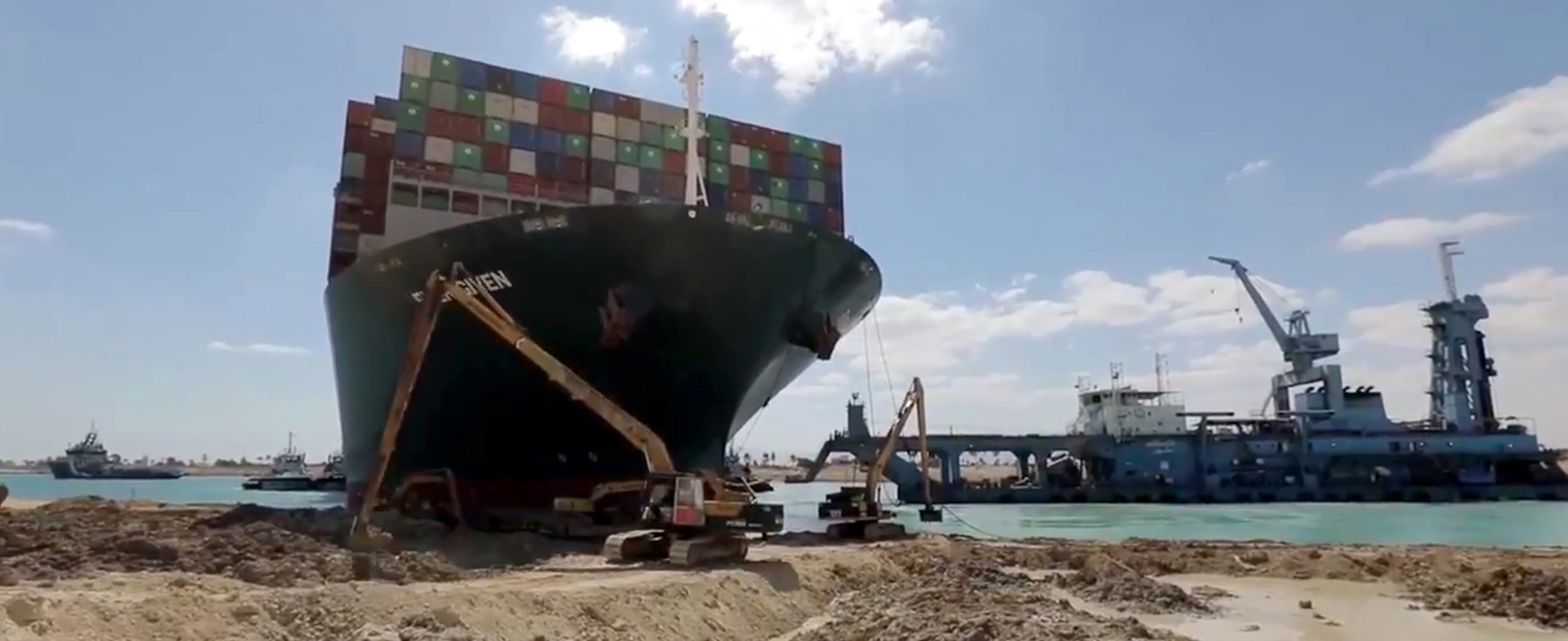The Real Lesson From Ever Given: Dredging Critical for Supply Chains and Energy Trade
By Dr Leila R. Benali
The blockage of the Suez Canal exposed for a few days the vulnerability of supply chains to chokepoints, while the world is grappling with a third wave of COVID-19 and a fragile recovery.
Many analyses have focused on the geopolitical or strategic role of the canal and the increasing importance of the eastbound route given increasing demand in Asia, but they missed one key lesson learned from the accident.
While physical chokepoints such as the Suez Canal do present risks to global trade, infrastructure investment, specifically government spending on marine dredging, is a key vulnerability that should not be overlooked, particularly with the historic stimulus spending mobilized in various parts of the world.
The International Energy Forum commends member country Egypt for its diligent and successful action to refloat the Ever Given. From an energy markets view, the blockage did not have a significant impact on oil and gas markets, even if oil tankers constituted 30-40 percent of the transit through the canal last year. In reality, less than 10 percent of global hydrocarbons transit through the canal. According to Kpler, the data and intelligence providers, energy tankers potentially delayed include 8.8 million barrels of crude (equivalent to 10 percent of one day’s consumption), 15 vessels of refined products and five LNG carriers. The canal cannot accommodate the largest oil tankers, which ply the route around the Cape of Good Hope. On aggregate, by March 29, 429 vessels were waiting to enter the canal.
With crude and oil product stocks at comfortable levels, except in a few Mediterranean countries whose supplies were heavily affected, the blockage would have needed to last a few more weeks before it would have had a sizable impact on oil and gas trade, freight costs and energy prices.
While energy markets were largely unscathed, the blockage did highlight the vulnerability of the dredging industry, which keeps waterways open to international trade. It is an industry that often depends on government contracts, is vulnerable to increasingly squeezed margins and has been heavily affected by the suspension of public works during the pandemic. Dredged shipping channels are critical infrastructure for global energy and wider trade.
The Suez Canal, which first opened in 1869 after 10 years of construction, benefited from one of the biggest dredging projects of the current century. In 2015, under President Abdel Fattah El-Sissi, the New Suez Canal was a gigantic effort in operations, planning and production completed in an unprecedented one-year period.
The project expanded the canal and built a new lane allowing the simultaneous transit of ships in two directions. According to industry experts, the idea of allowing ships to conduct a U-turn was abandoned as it would have doubled the cost of dredging. Most of the funding was raised from the Egyptian public through interest-bearing investment certificates and US$8.4 billion of financing was closed in eight days. Dry excavation works had to be carried out by the Egyptian Army, and the deadline for the whole project was extremely tight. The Suez Canal Authority forecasts revenues to increase from US$5.3 billion in 2015 to US$13.2 billion by 2023. Revenues in 2019/2020 were $5.7 billion.
In many parts of the world, maintenance dredging has been cut during the pandemic, and the industry was already facing pressure to limit the size and number of dredgers it is building given the increasing uncertainty over new contracts. Cost-cutting pressures in many ports, harbors and waterways led to a lack of maintenance.
Energy constitutes roughly 20-25 percent of the dredging market. LNG trade created large dredging projects in exporting and importing countries. Dredging also involves trenching work for the laying of oil and gas pipelines or work related to offshore wind farms. Rising sea levels and population growth in coastal areas might decrease this share. But for energy trade, the pressures faced by the dredging industry could represent a greater chokepoint for global energy supplies than the Suez Canal.
Dr Leila R. Benali is Chief Economist of the International Energy Forum.






